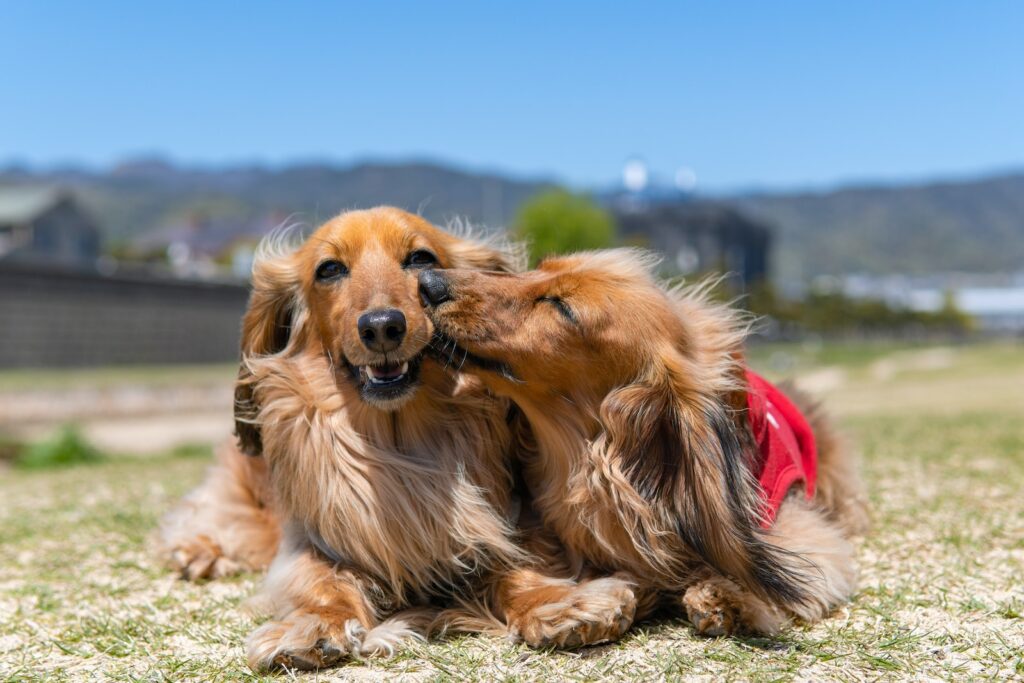Can Dogs Eat Turkey? — Yes, They Can
Dogs can safely eat turkey as long as it is cooked and prepared properly. Turkey is a lean source of protein which is essential for dogs’ overall health and wellbeing. It provides important nutrients such as vitamin B12, iron, zinc, and selenium that dogs need for their immune system, muscle development, and energy levels.
Can Puppies Eat Turkey?
Yes, puppies can safely eat turkey. However, it is important to ensure that the turkey is cooked thoroughly without any seasoning, spices, or bones. Puppies have more sensitive stomachs compared to adult dogs, so it is crucial to introduce new foods gradually and monitor their digestion for any signs of discomfort.
Things to consider when feeding turkey to puppies?
When feeding turkey to puppies, it is important to only offer them small portions as a treat or mixed with their regular puppy food. Avoid feeding them excessive amounts as it can lead to an upset stomach or diarrhea. Additionally, make sure the turkey is boneless and free from any skin, as it can be a choking hazard or cause digestive issues in puppies.
Nutritional Benefits of Turkey for Dogs — Why Turkey is Good for Dogs?
Protein Source
Turkey is a great source of lean protein for dogs. Protein is essential for muscle growth, repair, and overall development. It promotes a healthy coat, nails, and supports the immune system.
Vitamins and Minerals
Turkey contains important vitamins and minerals such as vitamin B12, iron, zinc, and selenium. These nutrients are beneficial for dogs’ overall health, energy levels, and the proper functioning of their organs.
Low in Fat
Turkey is a lean protein option for dogs as it is generally low in fat. This makes it a suitable choice for dogs that need to maintain a healthy weight or have specific dietary restrictions.
Amino Acids
Turkey provides essential amino acids that dogs cannot produce on their own. These amino acids contribute to the development of strong muscles, tissues, and help support the production of enzymes and hormones in their bodies.
Source of Tryptophan
Turkey contains tryptophan, an amino acid that aids in the production of serotonin, a neurotransmitter that promotes feelings of calmness and relaxation in dogs. This can be beneficial for dogs that experience anxiety or stress.
Potential Allergies: Can Dogs Be Allergic to Turkey?
While rare, some dogs can develop allergies to turkey. Signs of turkey allergies in dogs may include itching, skin rashes, gastrointestinal upset, or even respiratory issues. If you suspect your dog is allergic to turkey, it is best to consult with a veterinarian to determine the underlying cause and seek appropriate treatment.
Symptoms of Turkey Allergies in Dogs
- Itching and scratching excessively
- Redness or inflammation of the skin
- Gastrointestinal issues such as vomiting or diarrhea
What to Do If Your Dog Shows Symptoms?
- If your dog shows symptoms of a turkey allergy, consult with a veterinarian for proper diagnosis and guidance.
- Keep a record of the symptoms and any potential triggers to help identify the specific allergen.
- Avoid feeding your dog turkey or any turkey-based products if an allergy is confirmed.
Recommended Amount: How Much Turkey Can a Dog Consume?
The recommended amount of turkey for dogs depends on their size, age, and individual dietary needs. As a general guideline, dogs can have small portions of cooked, boneless turkey as a treat or mixed with their regular balanced diet. It is important to avoid seasoning, spices, or any additives that can be harmful to dogs.
Things to Consider When Feeding Turkey to Dogs
When feeding turkey to dogs, it is crucial to remove any bones, skin, and excess fat. These can cause digestive issues, choking hazards, or lead to pancreatitis in some dogs. Additionally, always ensure the turkey is thoroughly cooked to avoid any potential bacterial contamination that might harm your dog’s health.
How to Feed Turkey to Dogs: A Quick Guide
Introducing turkey to your dog’s diet can be a wonderful way to provide them with variety and nutrients. Here are three simple turkey-based recipes that your dog will enjoy:
Turkey and Sweet Potato Stew
Ingredients:
- 1 cup cooked turkey, shredded
- 1/2 cup cooked sweet potato, mashed
- 1/4 cup carrots, diced
- 1/4 cup green beans, chopped
- 1/4 cup low-sodium chicken broth
Directions:
- In a saucepan, combine all the ingredients.
- Cook on low heat for about 10 minutes, or until the vegetables are tender.
- Let the stew cool before serving it to your dog.
Turkey and Pumpkin Dog Treats
Ingredients:
- 1 cup cooked turkey, finely chopped
- 1/2 cup pumpkin puree
- 1 cup whole wheat flour
- 1/4 cup oats
- 1/4 cup water
Directions:
- Preheat the oven to 350°F (175°C) and line a baking sheet with parchment paper.
- In a bowl, mix together the cooked turkey, pumpkin puree, whole wheat flour, oats, and water until well combined.
- Roll out the dough to 1/4‑inch thickness and cut into desired shapes with cookie cutters.
- Place the treats on the prepared baking sheet and bake for 20–25 minutes, or until golden brown and crispy.
- Allow the treats to cool completely before giving them to your dog.
Slow-Cooked Turkey and Vegetable Medley
Ingredients:
- 2 cups cooked turkey, shredded
- 1 cup sweet potatoes, cubed
- 1/2 cup carrots, sliced
- 1/2 cup peas
- 2 cups low-sodium chicken broth
Directions:
- In a slow cooker, combine the cooked turkey, sweet potatoes, carrots, peas, and chicken broth.
- Cook on low heat for 6–8 hours or on high heat for 3–4 hours, until the vegetables are tender.
- Mash the mixture lightly with a fork or potato masher to create a chunky consistency.
- Let the medley cool before serving it to your dog.
Conclusion
In conclusion, dogs can eat turkey as long as it is properly cooked and prepared. It provides them with valuable nutrients, including protein, vitamins, and minerals. However, it is important to always remove bones, skin, and excess fat, and avoid seasoning or spices that could be harmful. As with any new food, introducing turkey to your dog’s diet should be done gradually and in moderation. If you have any concerns about your dog’s health or dietary needs, consult with a veterinarian for personalized advice.






